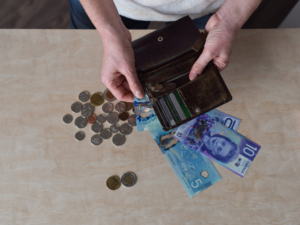When visiting a paramedical clinic (physiotherapist, chiropractor, massage therapist, counsellor, naturopath, etc.), they may ask you to leave your credit card on file to access their services. This practice can raise many questions and concerns, such as how I am protected, whether it is legal and whether I can pay by another method. This blog post will provide all the information you need about leaving your credit card on file for paramedical services.
Why do I have to leave my credit card on file?
Leaving your credit card on file is customary in the healthcare industry. It allows the clinic to bill for services rendered in case your insurance does not fully cover the treatment or if you fail to attend your appointment. It also helps deter fraud by holding patients accountable for their appointments and associated costs.
Is it legal to ask for my credit card on file?
Yes, the law permits clinics to request your credit card on file, granted that they adhere to all relevant rules and regulations. Before leaving your credit card details on file, ensure that the clinic provides you with a privacy policy, which outlines what information they collect, how they use it, and how they protect it.

How am I protected?
Canadian and Provincial privacy laws (PIPEDA, HIPAA and PIPA) govern the use of personal information, including credit cards on file at healthcare facilities. Clinics must ensure that all patient data is kept safe and secure through various precautions, such as encrypted servers, password-protected access, and firewalls. Additionally, a reputable clinic will have privacy policies that adhere to all legal requirements for data protection.
To guarantee the safety of your financial information, inquire about a clinic’s payment and database system’s PCI compliance. The Payment Card Industry Data Security Standard is a set of requirements to ensure that all companies handling credit card information maintain a secure environment. By conforming to these standards, clinics strive to protect the confidentiality and integrity of sensitive data, thereby enhancing the overall security of their operations. As an example, Newleaf Total Wellness Centre uses the Jane App. Jane never stores a client’s credit card information directly on Jane’s servers. When staff enter a credit card in Jane, the data is instantly transferred to one of Jane’s payment processing partners through encrypted transfer. The clinic staff can only view the last four digits of your credit card, which means your sensitive information is not openly accessible.
Will the clinic refuse service if I don’t give them my credit card?
The answer to this question largely depends on the clinic’s policies. Some clinics may require your credit card on file to book an appointment. Others may refuse to provide services if payment is not received upfront. It’s always best to check with the clinic beforehand to understand their policies and requirements. A reputable clinic will not deny you service because you did not agree to submit your credit card information via an online intake portal. If entering your credit card information online makes you uncomfortable, look for a clinic that provides you with other options, like giving your card information over the phone, bringing it to the first appointment, purchasing a gift card, or paying upfront.
When will the clinic bill my credit card?
The clinic will bill your credit card if it discovers your health insurance did not cover the total amount or if you fail to attend your appointment. They may also charge a fee if you give less than 24 hours’ notice to cancel your appointment. Ensure you read and understand the clinic’s policies to know when they may charge your card.
It is worth noting that insurance companies, including ICBC and WorkSafe BC, will not pay for missed appointments, and billing them for such is fraudulent. Fees associated with missed appointments are always the patient’s responsibility.

What if I want to pay with another credit card, cash, or debit?
You can inform the clinic beforehand if you prefer to pay by another method. It’s always best to communicate your preferences upfront so the clinic can make the necessary arrangements. However, note that some clinics may still require your credit card on file to secure an appointment, even if you choose to pay by another method.
What if the clinic bills my credit card in error?
Let’s face it – mistakes happen! However, reputable clinics will take steps to avoid these errors by routinely reviewing the accuracy of claims processed. They should contact you if they find a problem. If there is a problem with your bill and you don’t notice it until after the payment process, call the clinic immediately. Most electronic medical record and billing systems (like Jane) make correcting issues and processing refunds to your credit card easy. If the dreaded mistake does happen, take steps to work through the fix with the clinic and ensure they outline how they will prevent similar errors from occurring again.
Conclusion
Leaving your credit card on file for paramedical services is a customary practice that can provide efficiency and security for both you and the clinic. It is essential to understand and the clinic’s billing and payment policies and how they use and protect your financial information. By staying informed and asking the right questions, you can ensure a smooth and stress-free experience when visiting your preferred paramedical clinic.
Written by: DeVera Nybo, MBA, CEO/Owner, Newleaf Total Wellness Centre

